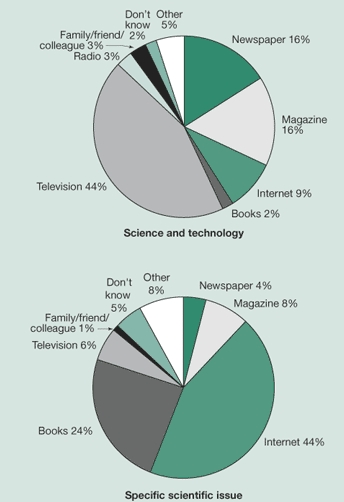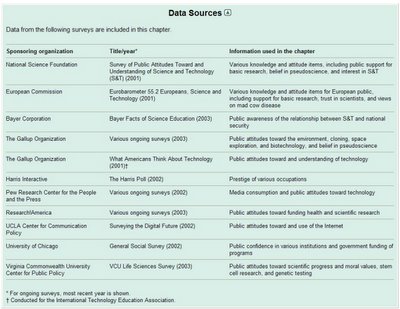In this column, the worldly and profound Nicholas Kristof begins with the intelligent design debate and comments on the American culture's disdain of science as it is, "a profound illiteracy about science and math as a whole".
A larger problem is the arrogance of the liberal arts, the cultural snootiness of, of ... well, of people like me - and probably you.
... In the U.S. and most of the Western world, it's considered barbaric in educated circles to be unfamiliar with Plato or Monet or Dickens, but quite natural to be oblivious of quarks and chi-squares.
Such great thinkers of the Western tradition as Aristotle insisted that women have fewer teeth than men. As Bertrand Russell said, "although he was twice married, it never occurred to him to verify this statement by examining his wives' mouths."
While I'm a fan of Aristotle's On Rhetoric--as I am a bigger fan of Kant's metaphysics--parts of their works have quite limited applicabilities today. As historical works of smart men and women before our time, they demonstrate both the power and the limits of reason, how deeply the mind can make sense of the world and how simply it can fall short.
Indeed,
...don't pin too much faith on the civilizing influence of a liberal education... similar arguments were used in past centuries to assert that all a student needed was Greek, Latin and familiarity with the Bible - or, in [Ming Dynasty] China, to argue that all the elites needed were the Confucian classics.
Increasingly, we face public policy issues - avian flu, stem cells - that require some knowledge of scientific methods, yet the present Congress contains 218 lawyers, and just 12 doctors and 3 biologists. In terms of the skills we need for the 21st century, we're Shakespeare-quoting Philistines.
Mr. Kristof quotes work by Jon Miller, the Director of the Center for Biomedical Communications at Northwestern University showing that "in 34 countries, says Turkey is the only one with less support for evolution than the U.S." Couldn't find the original source, so can't comment on the methodology.
I did find this report at National Science Foundation on public understanding of science and tech from 2004:
More Americans now agree with the theory of evolution. The 2001 NSF survey marked the first time that more than half (53 percent) of Americans answered "true" in response to the statement "human beings, as we know them today, developed from earlier species of animals." (In Europe, 69 percent responded "true.")
The data sources of this report:
Other interesting findings from this report:

While belief in pseudoscience is still common--60 percent of surveyed Americans said they believe in extrasensory perception, and 41 percent thought that astrology is at least somewhat scientific., only a small subset (10 percent) of the American population admit no interest in science and technology issues. It's not clear however if this interest is in science and tech in themselves or if it includes antagonism.
As seen on the figure on the right, Americans get most of their information about science and tech from TV (top pie). But when they have specific science & tech questions, they overwhelmingly turn tot he internet (bottom pie).
Technorati Tags:
Science / Humanities / Public understanding of Science / Nicholas Kristof




No comments:
Post a Comment